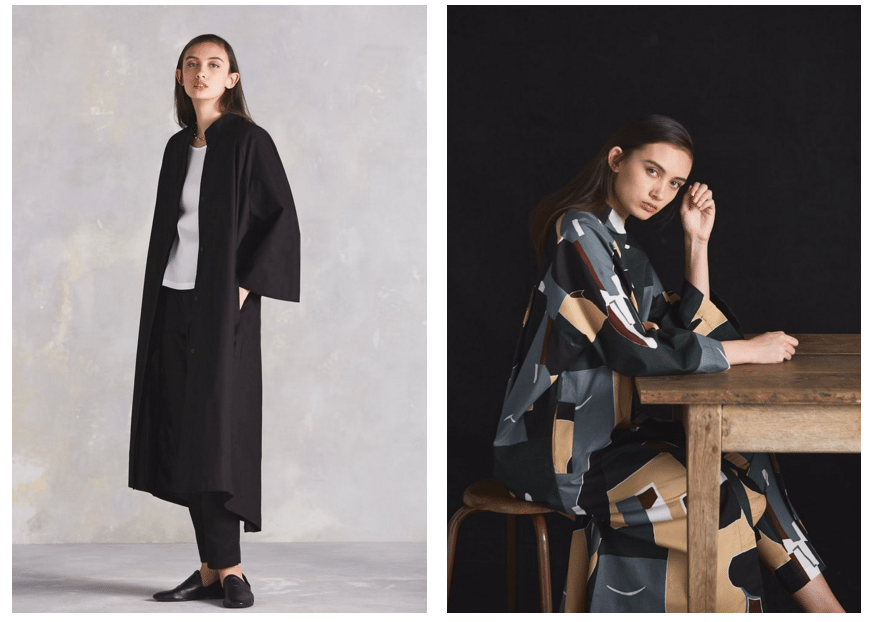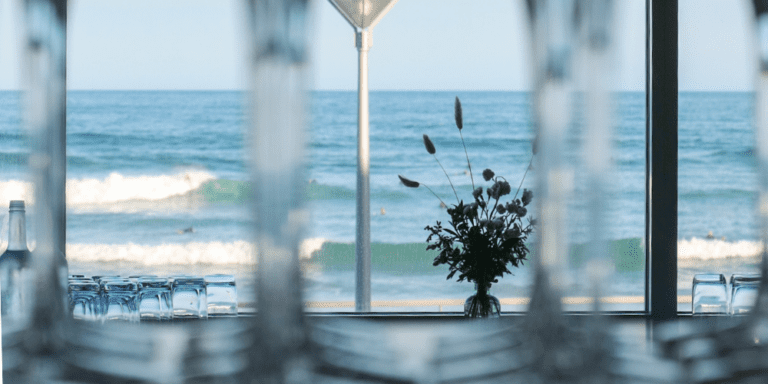Polish-born Gosia Piatek ventured into the world of fashion with little experience and only $5000 in her bank account. Ten years later and her ethical clothing label Kowtow has blossomed into one of New Zealand’s fastest-growing fashion brands.
Gosia Piatek is back in her adopted hometown of Wellington on one of her whirlwind visits. Born in Poland, the entrepreneurial creative currently spends half her time in London. The ambitious young businesswoman and mother of one seems unruffled by a lifestyle that would undoubtedly leave many others on edge. Piatek’s nonchalant demeanour is even more apparent when I mention that there’s been an office-wide debate over the correct pronunciation of Kowtow. “It’s ‘co-toe’, but I’m pretty certain it should be ‘cow-tao’,” says Piatek, laughing. “Sometimes I make up sounds! I think it’s to do with having English as a second language.
“It’s Chinese,” she goes on to explain. “You kowtow to the emperor; it’s a sign of respect.” As for how Piatek decided on her company’s name, it was during a late-night flick through the dictionary that she first stumbled on the word. “I wanted something short, memorable and abstract. I wanted it to stick in people’s minds.”
This October, Piatek will celebrate Kowtow’s 10th anniversary, and she’s still happy with the name. “When we first started, I had $5000 in my bank account; it was just me and my partner. Now there are 16 of us in New Zealand, and we’ve just opened a three-storey showroom in Australia.” The Melbourne showroom is only one of Kowtow’s milestones. Although Piatek’s company is experiencing rapid growth, she says it’s been a slow evolution to get where they are today. “I was bored with my life, and it was actually my friend’s idea. She said: ‘Why don’t you start a fair-trade organic clothing company?’” Piatek admits she had little idea what that was and went home to Google it. “It made sense to me. I felt like the world can be a messed-up place and I didn’t want to add more to it. I love design and I’ve always cared about the environment and people. It was all the aspects; it wasn’t just fashion.”
Things progressed quickly: Piatek emailed a bunch of people, then a contact from India got in touch and before she knew it a retail order from Australia had been secured. Piatek herself was somewhat surprised by how it all fell into place. “We delivered the order successfully and got paid, so business was on! I think my naivety got me through.” Kowtow has gone from designing two collections a year to six, and Piatek says the brand is nearing 200 stockists worldwide. “You can even find us in Dubai; it’s kind of crazy.” While New Zealand and Australia remain Kowtow’s biggest markets, the brand is gaining international recognition quickly: Piatek has a dedicated agent in New York with an office in Copenhagen and Tokyo, and has just appointed another in Italy.

Piatek’s designs are undeniably wearable – there’s something timeless about the structural silhouettes that feature strongly in her collections – and her ethical and sustainable stance has undoubtedly propelled Kowtow into the spotlight both locally and internationally. “I’ve never known anything else,” says Piatek. “I don’t know what the conventional version is. I don’t know what it’s like to be in a factory with children or terrible conditions. I just know what we do feels good.”
Unlike most designers, Piatek purchases everything directly from the cotton farmers and is certified Fairtrade and organic. “The whole process is really transparent; we know the farmers who grow our cotton. We pay a premium, there’s a set price. We can’t bargain them down.”
Travelling to India to visit the two factories Kowtow works with (one in Mumbai and one in Kolkata) is a real assault on Piatek’s senses: she loves it, but admits it can be overwhelming. “Your heart pours out. Some of the things you see, you’d never dream of seeing them in New Zealand. But I love going to the factory. Everyone has a job, so they’re happy. We joke around. They’re paid fairly. It’s a positive environment.”
Conscious, sustainable fashion is the opposite to fast fashion: at Kowtow, runway trends are rarely, if ever, considered, and everything moves much slower. “We can’t use everything we want to; we wanted to create a coat, but we only work with cotton. We’ve been looking into using a filler made from recycled plastic bottles, but it’s tough.” Piatek isn’t quick to chastise other designers; she understands it’s easier to buy what you need without asking too many questions. But Piatek’s team keep each other honest. “We all hit each other up on it and on not taking the easy route, it’s what our culture has been built on. It’s exciting.”
It seems to be Piatek’s way: to focus on her team’s direction rather than worry too much about what other designers are doing. “We’re about to start Autumn/Winter 18 and we don’t know what’s going to be in fashion, but we just do what we love. We don’t worry about trends, we’ve been so staunch to our own aesthetic, and it’s paid off.”
As for ethics in the industry, Piatek thinks we’re pretty blessed in New Zealand. “We’ve got a solid scene here. A lot of people are manufacturing locally and it’s great to see all the designer boutiques popping up.” Internationally, she feels positive change is afoot. “We’re asking more questions and big brands are starting to pay attention. But it’s always going to be hard,” she says. Piatek believes for things to truly change, we need to reassess the way we consume fashion. “I think some people buy excessive amounts rather than buying one good thing they’ll treasure.”
Today it’s Piatek’s wish to encourage people to buy what they love. “The best advice I’ve ever received is if you really want something, don’t just buy it; go home and if you’re still thinking about it, then go back and buy it.”






